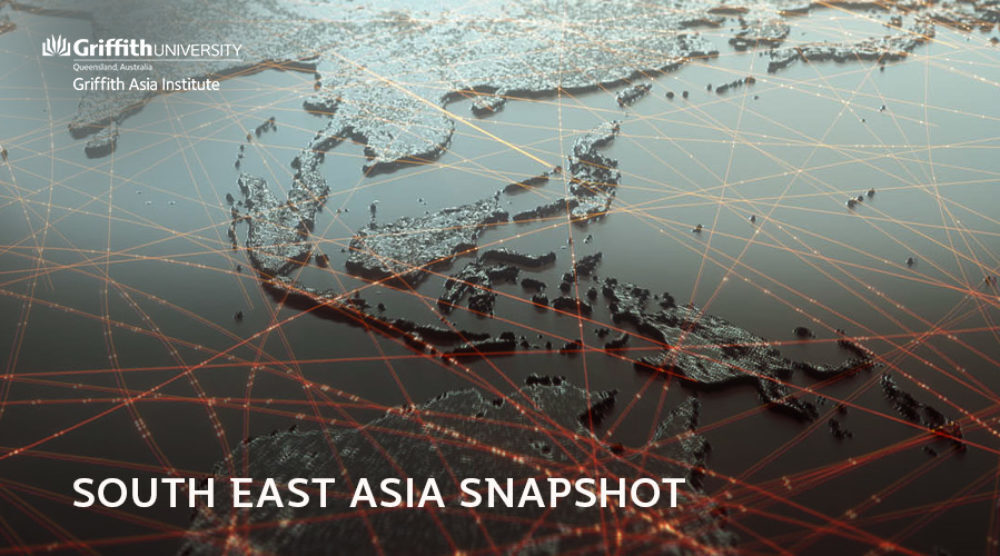Malaysia urged Thailand to step up action in Myanmar
With the security challenges in Myanmar still threatening stability in the region, the Malaysian Prime Minister has asked Thailand—during his meeting with Prayut Chan-o-cha on 9 February—to play a bigger role in bringing peace to Myanmar.
The meeting between the two leaders was initially around the violence and insurgency towards the Muslims in Southern Thailand, in which the Malaysian PM expressed his intentions to publicly denounce. Noting that the Thai government has maintained normalised ties with the junta in spite of international sanctions towards the Tatmadaw, the Malaysian PM encouraged Thailand to be more vocal in helping Myanmar with its peace effort.
The Malaysian Prime Minister added that ASEAN needs to be coherent and united in its approach to Myanmar. Others view this as another step in Malaysia’s plan to further pressure the junta as the conflict has seen an influx of refugees in not only Bangladesh, Thailand, and Indonesia but also in Malaysia where data suggests the country is hosting nearly 200,000 refugees causing a heavy burden on its economy. Thailand did not respond directly to this request but expressed understanding of the situation regarding the Muslim population in the south.
This event is yet another demonstration of the regional implications of the Myanmar crisis, and the need for states in the region to coordinate an impactful response.
Myanmar junta plans to allow ‘loyal civilians’ to bear arms
The junta is set to allow its ‘loyal civilians’, including government officials and retired militants, the right to apply for a license and bear firearms, according to the military and leaked report.
These rights will allow individuals over the age of 18 whom the junta deem as loyal civilians, the right to five firearm types including 9mm pistols and revolvers, 12-gauge or smaller shotguns, hunting rifles, and air guns. The civilians must be loyal, with good morals, and must never have had any record of meddling in state security. Furthermore, loyal civilians need to demonstrate the need for owning firearms, mainly for security purposes, before owning one. Crucially, they must also participate in law enforcement when called by the junta.
With the junta’s military spokesperson’s confirmation of the plan, some are concerned the move could escalate the ongoing violence as both the military and the armed resistance would get access to firearms. However, more alarmingly, some believe that the junta is arming its supporters to quash protestors, resulting in more violent clashes. Further comments from the Tatmadaw have not been made.
The latest move to enhance rights for junta loyalists could not only escalate violence between the pro-Tatmadaw and the oppositions, but it signals another roadblock on the path to resolution in Myanmar.
Cambodia’s leader ordered a shutdown of an independent media agency
The Cambodian Prime Minister has ordered to revoke the license of an independent news outlet—Voice of Democracy (VOD)—effectively shutting it down on 13 February.
The agency published an article about the government’s donation of USD 100,000 to Turkey which cited that his eldest son, Lt. Gen. Hun Manet had signed the financial relief document on his behalf. The VOD was given 72 hours to apologise to the Prime Minister and his son over the allegations, claiming that the article was misinformation. The Prime Minister reiterated that only he has the right to make such authorisations. The news outlet sent a letter of apology to the Prime Minister but it was not accepted.
Prime Minister Hun Sen labelled the move an attack on him and his son’s dignity. While the license has been revoked, the property of the news outlet will not be seized and some staff will be employed in civil state agencies.
The Cambodia Center for Human Rights viewed the decision with great concern as they argue the outlet plays an important role in promoting information sharing and underpins the freedom of the press in the country. The abrupt shutdown of VOD undoubtedly sent an indirect warning to other Cambodian news sources, potentially limiting their ability to publish freely and with transparency in the future.
Thai PM to dissolve Parliament before the term ends in March
Thailand’s Prime Minister Prayuth Chan-o-cha will dissolve the parliament before the government’s term ends in late March; however, the exact date of the parliament’s dissolution has not yet been announced.
This will see a rematch between the Prime Minister and ousted former Prime Ministers, Thaksin Shinawatra and Yingluck, who were removed from power during political coups in 2006 and 2014 respectively. The next election could also see Prayuth running against Prawit Wongsuwan, the Deputy Prime Minister and an influential actor in the Thai army. Despite these challenges, this snap election may be advantageous for Prayuth as it would present the opportunity for more members to be recruited into his party, the United Thai Nations Party (UTN).
The dissolution presents an interesting challenge for the Prime Minister, given that recent opinion polls only show 4.8 percent support for his party compared to 23.4 percent for the opposition. The early dissolution could be advantageous for Prayuth in that the period for nominating party members as candidates in the election would reduce from 90 days to only a month. While the government has not set a specific timeline, constitutionally an election must be organised within the country no later than May 2023.
As with any election, observers are keeping a close eye on the polls to see if the Prime Minister is able to make a change in his party’s popularity, or if the seat of power will shift in Thailand.
Sovinda Po is a Research Assistant at the Griffith Asia Institute.








